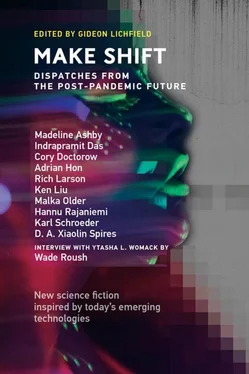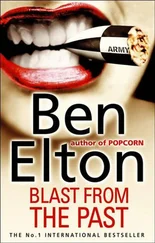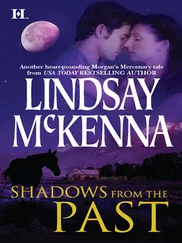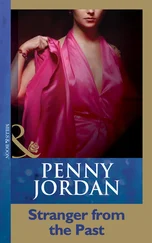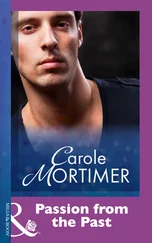“Oh, I can guess,” said Cindy.
“It’ll all be announced tomorrow,” replied Reuben. “But I made sure there’ll be a Hong Kong marquee. Cindy, Elaine, you should volunteer.”
“Mmm hmm,” Cindy said, skeptically.
“They’ll need people who know AR, not a bunch of old folk with too much time. I don’t need to tell you how important this could be for Little Kowloon. For the whole diaspora, actually. We need to show we’re fitting in,” he said, before vanishing.
THREE YEARS BEFORE H1N3, MILLIONS OF HONGKONGERS LEFT THEIR HOMESforever. Having lost their struggle for self-governance, having being spurned by an America in turmoil, they’d been granted a pathway to citizenship in Australia, New Zealand, Canada, the UK—and in the newly independent Scotland.
I was at the airport to meet the first arrivals, press drones buzzing about in agitation. Of course, there were bagpipers. I explained over and over, no, I wasn’t from Hong Kong, I was born in Inverness, but yes, my parents are from Hong Kong. Thank you, my accent is lovely, isn’t it?
Then the gates opened, a stream of tired and elated and anxious and scared faces coming without end, as if a portal between our cities had opened rather than a 787 touching down every thirty minutes.
They bunched up in the arrivals hall, accepting their welcome boxes, posing for photos, registering with volunteers, taking interviews, waiting for their trams and buses. I spotted Cindy’s family, friends of my mum from high school, and threw thick coats around their shoulders. It’s colder than you think, I laughed. You’re staying in Leith? That’s near me, we’ll be neighbors! We teetered between mania and trepidation. I wondered when someone would start crying. No one could tell if this was too much, too soon.
The bagpipers paused, catching their breath. The energy seemed to evaporate into the dry, cold air. Maybe this was a mistake. Maybe it was all too little, too late.
“Heung gong yan, ga yau!” shouted a young man.
“‘Su ge lan yan, ga yau!’ Hongkongers, add oil! Scots, add oil!” I explained to the confused Scottish staff. Add oil–it means “go for it!” Or maybe, keep going.
So maybe it would work after all. It’d better, with a quarter of a million more Hongkongers on their way.
I WAS A LITTLE NERVOUS WHEN WE VOLUNTEERED FOR THE HONG KONG TEAM.Technically, it was the “Little Kowloon Cultural Delegation,” but everyone called them Hong Kong, much to the Chinese ambassador’s irritation. When I confessed this to Cindy, she told me to stop being ridiculous and no one cared where I was born. We were hoping our gaming experience would earn us accordingly important positions, but we were firmly told those roles were filled. We were welcome to apply for the logistics crew, though. I was about to send an indignant reply when I saw who’d sent the email: Celia Chan.
I spotted her the next day, when the thirty-strong Hong Kong team gathered in their marquee in the Meadows, erected overnight by PPE-swathed builders directing a fleet of construction drones. The technical specifications showed every marquee as identical: ten meters wide, thirty meters long, and a generous three meters tall. Festival teams were permitted to modify the interiors as they wished, within a set budget and adhering to strict health and safety guidelines.
The festival’s level playing field, an artefact of funding and pandemic regulations, led to unsavory talk of an “Arts Olympics.” Most teams publicly rejected the comparison, but Cindy wasn’t alone in joining the social media smack talk about who would get the biggest audiences and best reviews. The fact that audience numbers were being reported in real-time, as per health regulations, heightened the sense of competition.
Awaiting Celia Chan, we shuffled into a circle in the center of the marquee, gingerly testing how closely the social distancing software in our glasses would let us get to each other. Light streamed in through transparent panels in the ceiling, with a brisk breeze flowing through vents. Someone had set up high-resolution atmospheric sensors inside, feeding data to the physical distancing protocols on our glasses. As the wind dipped and rose, our circle expanded and contracted, a living, breathing diagram of viral transmission risk.
Scotland had been spared the worst of H1N3. After COVID-19, the public backed a swift and complete lockdown: security cordons across the border at Berwick, rapid antibody testing at the airports, overwatch and intervention drones to enforce physical distancing in Edinburgh, Glasgow, Inverness, and Aberdeen.
The Hongkongers, some of whom had landed only weeks earlier, handled the pandemic with grim determination. What were a few months of wearing face shields after years of struggle? They ignored the Scots grumbling about hospital beds being taken up, about the virus breeding in the cramped temporary accommodations of Little Kowloon. They shrugged off the rumors and leapt into the fight with the gusto of the newly converted, volunteering in their thousands as doctors and nurses and social workers. One group of students even helped set up the country’s biggest mask-producing factory.
But there was a worry in Little Kowloon that they were being a little too exceptional. The problem with being a model minority is that you’re still a minority. How, then, to be more normal, they wondered? How to become Scots as well as Hongkongers?
The Edinburgh Festival was the opportunity: the jewel in Scotland’s cultural crown, the world’s biggest arts event, somewhere Little Kowloon could contribute and distinguish itself. Among us, I spotted Doug Yau, an acerbic standup comedian with millions of followers; Tricia Lee, the hotshot architect named as the next Hadid; Chen Xi, darling of the Venice Biennale for his living sculptures; and Angela Cheng, whose latest play had been booked for Broadway. I was surprised to see them here rather than in the warmer diaspora destinations like Australia. Someone had twisted a lot of arms to assemble this artistic dream team.
Celia Chan finally arrived and clapped her hands. “Thank you all for volunteering your time for Team Hong Kong. I realize you all have other priorities in combatting H1N3 and helping our community become established in Scotland, but we shouldn’t treat this opportunity lightly.”
She turned slowly as she spoke. “We cannot be complacent just because we’ve been welcomed here in Scotland. We aren’t citizens yet”—I looked away, feeling out of place—“so we need to prove our worth, and remind our hosts and the whole world who we are.” Chan was an odd choice to be kicking off proceedings. She was one of Hong Kong’s most famous names and a programming genius, but not the type to be working at the festival.
I wasn’t used to this kind of tub-thumping speech from her, and neither was anyone else, judging by their rapt attention. “Let me cut to the chase. I’m not an artist. I can’t claim the faintest experience in staging a play or doing standup or, I don’t know, anything to do with dance. What I do know is how to develop technology that can give others an advantage.” Everyone knew what she was talking about: Chan was the technical lead for the Diaspora Project that helped millions of Hongkongers emigrate safely with their physical, digital, and financial assets intact.
Tricia Lee stepped forward, an unmissable presence in her trademark black jumpsuit. “After I first learned about the new festival format, I reached out to Celia. We’ve been working together on a new dynamic distancing protocol, developed with the Public Health group at the university. We’re going to adapt it so we can host the largest audience in the festival, but still give them more intimate experiences than any other team.”
Читать дальше
